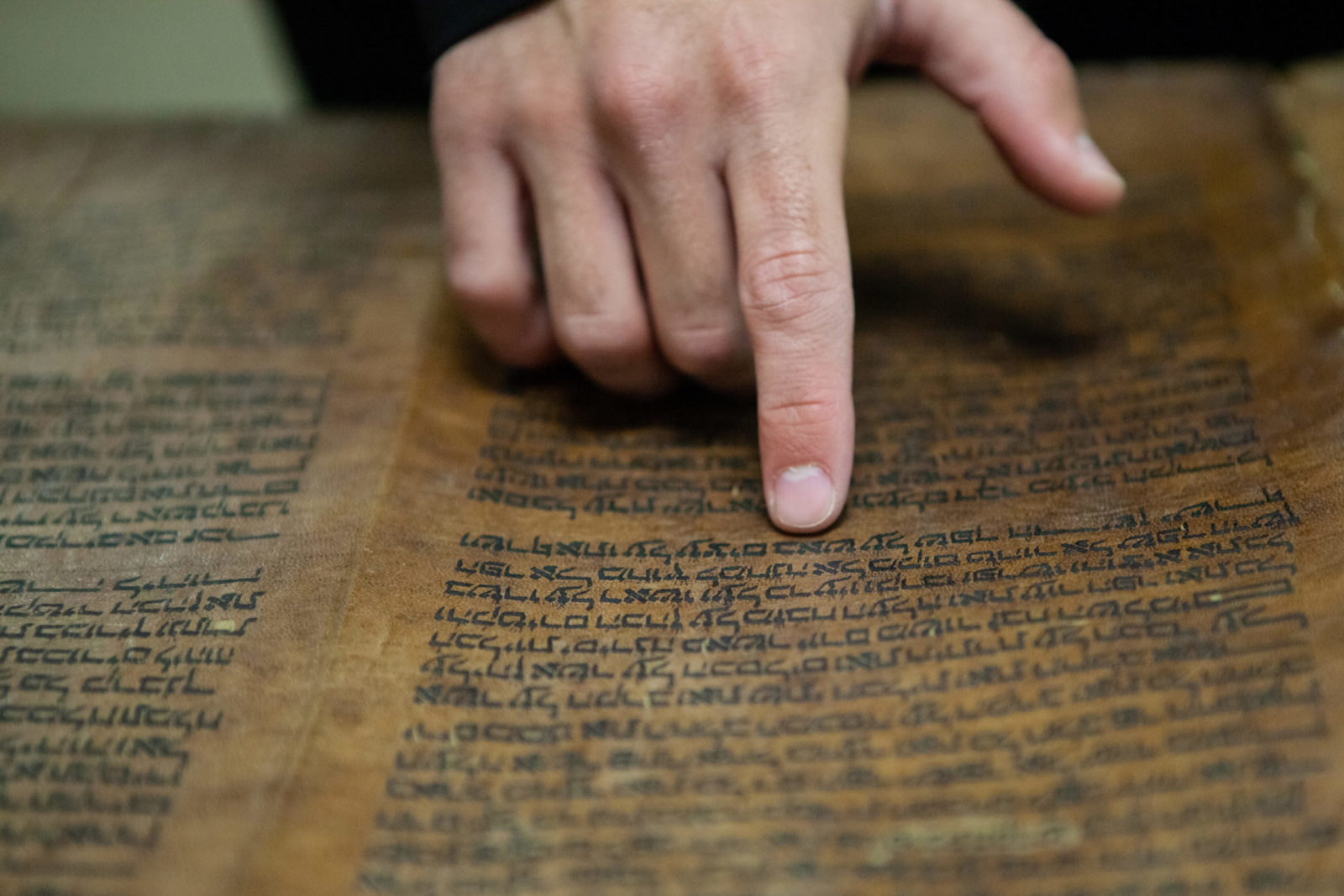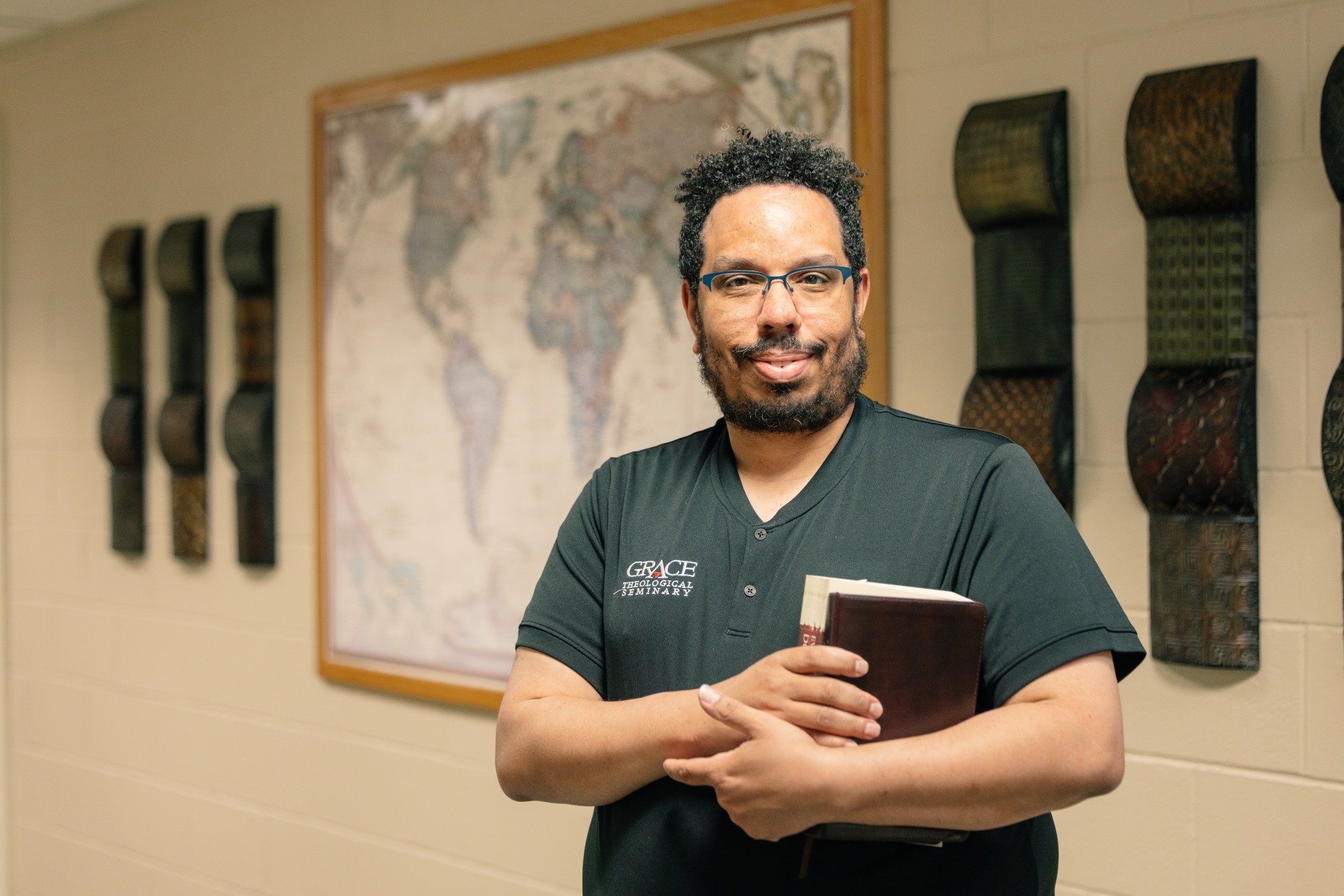Master of Divinity General Ministry (Deploy)
This Master of Divinity degree is comprehensive and includes coursework in theology, hermeneutics, spiritual formation, biblical exegesis, biblical theology, intercultural studies, leadership, and a variety of other practical ministry competencies.
Through Deploy, Grace Seminary offers a Master of Divinity in General Ministry (75-credit equivalence). The MDiv online degree path provides excellent training for those who aspire to or are involved in vocational ministry, especially those interested in preaching, teaching, senior leadership, and/or continuing scholarship.
Deploy is a competency-based theological education model that enables students to get ministry training while remaining in their ministry context. The Deploy curriculum is organized around competencies, rather than traditional courses, and has been shaped through collaboration between seminary faculty and frontline ministry leaders. Deploy students also receive ministry coaching from onsite mentors who serve alongside them, in their ministry context.

Ideal Fit
The MDiv in General Ministry is perfect for students seeking preparation for ministry leadership within congregational or parachurch settings.
Students enrolled in Deploy’s MDiv in General Ministry program will learn the biblical languages, nuances of biblical interpretation, how to think theologically, how to deal with conflict, worldview, and ethics, how to engage the culture, how to encourage spiritual formation, and how to preach, teach, and lead in the local church.
Career Opportunities
Depending upon ministry context, many leaders serve as general practitioners. Pastors and ministry leaders often function as theologians, preachers, leaders, administrators, evangelists, teachers, shepherds, and more.
-
Lead pastor
-
Pastoral staff
-
Denominational leadership
-
Parachurch administrator
-
Executive pastor
-
Teaching pastor
-
Church elder
-
Chaplaincy

Deploy has not only encouraged me to learn new aspects of theology and practice, but has also helped me to understand myself better as a pastor and follower of Christ. The professors and mentors combine to make this educational journey formative for the whole person! As a pastor, I’m grateful for this opportunity not only to be truly equipped for ministry, but also to focus upon my own soul. In aiming at helping to form me as a student into the image of Christ, Deploy is teaching me to be a pastor that seeks to minister to people on a deeper, more holistic level in the gospel.
Adam Swift
Deploy - 2020Course Overview
Students will be competent to be a change agent who leads churches (or ministries) to become or remain biblically healthy by articulating Christ-centered values and vision, developing strategies that unify churches around these values and vision, and initiating transformational rather than merely transactional change.
Learners will become competent to grasp and adapt to leadership pressures, conflict, and criticisms that are inherent in transformational ministry. This competency requires a leader to understand personal leadership tendencies due to family background and other personal influences (people and experiences), taking steps toward building on the strengths and being released from unhealthy patterns.
Students will be competent to articulate their own theology in light of their denominational/church affiliation. Students will understand and be able to articulate and explain their own theological convictions as they relate to their denominational or church affiliation, and complete the necessary preparations for ordination, or as if they were pursuing ordination.
Students will be competent to apply the basics of phonology, morphology, syntax, and vocabulary of biblical Greek and Hebrew to their study of Scripture. This competency will cover the essentials of Biblical Greek and Hebrew with an emphasis on phonology, morphology, syntax, and vocabulary. The purpose is to understand Biblical Greek and Hebrew for the purpose of translating and doing exegesis in the Hebrew Old Testament and Greek New Testament.
The student will be competent to evaluate, synthesize, articulate, and apply foundational doctrines in the different areas of Systematic Theology including: Bibliology, Theology Proper, Christology, Pneumatology, Angelology, Anthropology, Hamartiology, Soteriology, Ecclesiology, and Eschatology as they relate to one’s personal life, the lives of Christians, and the local ministry context
Entry Requirements
In order to be considered for enrollment in the Master of Divinity program at Grace Theological Seminary, you must fulfill certain admissions requirements:
-
A four-year bachelor‘s degree or its equivalent (for international students) from a recognized institution of higher learning. Graduates of Bible colleges, liberal arts colleges, and state colleges and universities are encouraged to apply.
-
A student who received his or her pre-seminary education at an institution that is not accredited or who achieved less than a 2.5 grade point average in pre-seminary education may be admitted on academic restriction.
-
Applicants without a bachelor’s degree who have completed some or no college may be admitted if they meet certain ministry and research/writing requirements. Please contact seminary admissions for more information; email: gtsrec@grace.edu or phone: 877.607.0012.
Admission Requirements
Grace Theological Seminary welcomes applications from all individuals who have a testimony of personal faith in Jesus Christ as Lord and Savior
To be admitted as a Grace Theological Seminary student, you’re asked to provide:
-
Official transcripts from the school where you obtained your degree. (If you are currently working on your degree, you can submit an unofficial transcript for admission until term completion, at which time an official transcript is required. Transcripts should be sent to admissions@grace.edu.
-
A spiritual life reference
-
International applicant must provide a copy of TESOL test scores, and provide a financial certificate indicating sufficient funding for the program of study.
-
Master of Arts applicants may have additional non-academic requirements as well as longer ministry experience requirements. MA applicants are encouraged to contact admissions for more information.
Learn More





